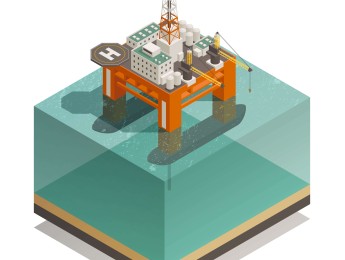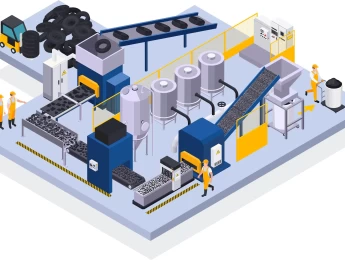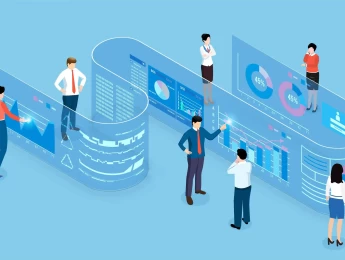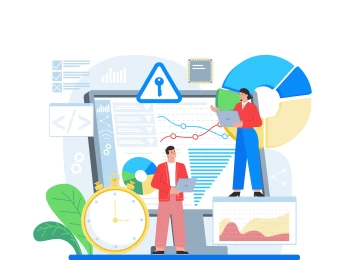The field of electrical engineering encompasses a vast amount of skills and knowledge. With the variety of electrical, electronic, communication, and computer systems, there is a high demand for electricians trained in specific areas.
For electricians to progress in their careers, it is crucial that they are competent in advanced electrical engineering methods. This ranges from research, development, operation, and maintenance of different power systems to creating their designs, which need to account for many internal and external factors such as grid networks, distribution systems, and transmission methods.
Not only does the electrician need to be capable of establishing a system, but they must also maintain and ensure its safety. Detailed risk assessments need to be conducted to account for any and all possibilities of faults. As a further preventative measure, safety devices must be adequately installed throughout the system to catch faults or power trips.
Upon completion of this course, participants will be able to:
- Create single line, layout, and schematics diagrams.
- Analyse and interpret the response of power systems in a variety of scenarios.
- Model a power system aligned with system parameters.
- Assess and modify a power system’s behaviours and enhance system parameters.
- Determine the location of the busbar configuration of a typical substation.
- Identify ideal specifications for major substation equipment.
- Assess risks and calculate fault levels and loadings of feeders and branches.
- Analyse protection logistics and coordination between protection devices.
- Understand the importance of load, fault, and feasibility studies.
This course is designed for established engineers looking to develop their knowledge and skill set further. It would be most beneficial for:
- Senior Engineers
- Principal Engineers
- Project Engineers
- Electrical Project Managers
- Directors of Technology
- Electrical Sub-Contractors
- Chief Engineer Officers (CEOs)
- System Operators
This course uses a variety of adult learning styles to aid full understanding and comprehension. Participants will partake in a range of practical activities to ensure they gain a thorough understanding of the skills and methods taught.
They will be provided with the highest-quality equipment to conduct learning exercises. In addition to the information taught through presentations, video materials, and discussions, participants will have ample opportunities to combine knowledge with practical capabilities and demonstrate their skills. Furthermore, they will be able to use new methods to create electrical designs related to their respective roles.
Day 5 of each course is reserved for a Q&A session, which may occur off-site. For 10-day courses, this also applies to day 10
Section 1: Power System Parameters
- The types of studies conducted to explore system parameters – load, fault, and feasibility.
- Establishing AC power transmission.
- Understanding different grid networks.
- Ensuring steady-state, transient, and rotor angle stability.
- Identifying the power system symbols.
- Phasor relationships and equations of sinusoids.
- Monitoring the power flow on transmission lines.
- Models of synchronous generators and their maximum potential.
Section 2: Transmission System Design
- Defining transmission line terms.
- Transmission line capacity and security.
- Building up impedance models.
- Balanced and unbalanced 3-phase systems.
- The importance of voltage regulation.
- Power transfer capability and current carry capacity.
- Ensuring the structures are correctly supported.
- Fitting the ideal overhead line conductors and insulators.
Section 3: Distribution System Design
- Typical characteristics of an industrial distribution system.
- Types of distribution systems and key components.
- Ensuring electrical and power safety throughout.
- Voltage classifications.
- Distribution planning, expandability, configurations, and redundancy.
- Evaluating the appropriate equipment, including sizes, types, and ratings.
- The process of embedded generation.
- Integrating embedded generation with plan distribution.
Section 4: Power System Protection
- The vitality of power system protection.
- Protection sensitivity, stability, and reliability.
- Establishing main and backup system protection.
- Assess the potential risks to the power system.
- The consequences of electrical faults.
- How are fault calculations in a per-unit (PU) system completed?
- Balanced and unbalanced 3-phase faults.
- Implementing overcurrent, earth fault, and lightning protection.
Section 5: Major Equipment and Safety
- Types of switchgear, components, and applications.
- Types of circuit breakers and applications.
- Assessing power quality.
- The advantages and disadvantages of grounded and ungrounded systems.
- Installing earthing and disconnecting switches.
- Creating a risk management plan, detailing all potential risks and precautions taken to prevent them.
- Understanding soil resistivity for certain types of systems.
Upon successful completion of this training course, delegates will be awarded a Holistique Training Certificate of Completion. For those who attend and complete the online training course, a Holistique Training e-Certificate will be provided.
Holistique Training Certificates are accredited by the British Assessment Council (BAC) and The CPD Certification Service (CPD), and are certified under ISO 9001, ISO 21001, and ISO 29993 standards.
CPD credits for this course are granted by our Certificates and will be reflected on the Holistique Training Certificate of Completion. In accordance with the standards of The CPD Certification Service, one CPD credit is awarded per hour of course attendance. A maximum of 50 CPD credits can be claimed for any single course we currently offer.
- Course Code IND04-115
- Course Format Classroom, Online,
- Duration 5 days














